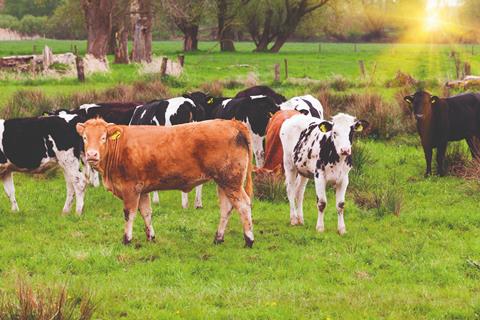The four red meat industry bodies have written to the chief veterinary officer (CVO) for England, Scotland and Wales, raising concerns regarding the negative impact of the 1st of July bluetongue restrictions.

The letter was addressed to Dr Christine Middlemiss, chief veterinary officer for England, Scotland and Wales, and was signed by Charles Milne of the Association of Independent Meat Suppliers (AIMS), Nick Allen of the British Meat Processors Association (BMPA), Eleanor O’Brien of National Craft Butchers and Scott Walker of the Scottish Association of Meat Wholesalers (SAMW).
The letter read: “Defra has decided that differentiation within England, given the extent of virus spread and the impact that dividing the country with a Restricted Zone (RZ), has limited benefit for industry.
“The consequence of this decision for Scotland and Wales is that there is now free movement of infected animals right up to their borders with England which has the potential to allow disease to disseminate throughout GB more quickly. As a result, it is recognised that it is not feasible or realistic to expect to keep the disease out of the free areas in GB forever.”
Charles Milne, spokesperson for AIMS, stated: “With just one week to go it is our firmly held opinion that GB must be considered a single epidemiological zone.
“Whilst it is accepted that notifiable disease outbreaks should be controlled to promote both animal health and welfare, it is also vitally important to minimise the economic impacts of the disease on the whole of the livestock production and processing industry. Neither will be achieved by the new restrictions.
“It is usual to inform controls of this nature through the production of an Impact Assessment, and the industry would be grateful for sight of the documents produced in England, Scotland and Wales in order to best understand the economic drivers for this decision.”
“Whilst the zoning on 1st July has the simplicity of utilising easily understood borders, the move creates significant challenges when producers utilise cross border livestock markets.”
Charles Milne, AIMS
Milne continued: “Such are our concerns that we have also included the CEOs of the levy boards to the letter as well as each country’s relevant ministerial team.
“Whilst the zoning on 1st July has the simplicity of utilising easily understood borders, the move creates significant challenges when producers utilise cross border livestock markets. For example, if a seller takes stock from a vaccinated flock the seller is limited to selling them into the market’s country buyers, and cannot either sell them on to a buyer from the country of origin nor return them to the flock of origin if the seller fails to find an acceptable buyer in the country of the market without incurring significant cost.”
In the interests of everyone who plays a part in the annual migration of livestock, an “exceedingly important” part of the entire livestock and meat business, AIMS said it is of the view that the bluetongue restrictions to be introduced on 1st July 2025 are “not fit for purpose”.
The Association stated that they are “neither a disease control strategy nor an attempt to minimise economic impacts”. With the availability of a vaccine, AIMS is of the view that the best way forward for all sectors of the livestock industry would be the immediate declaration of all parts of GB a Restricted Zone.















